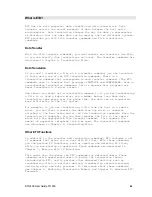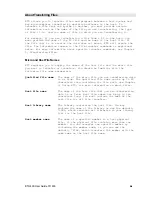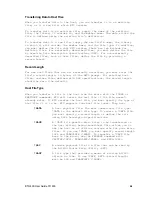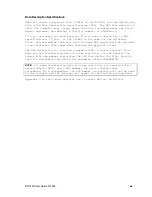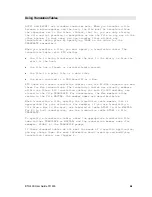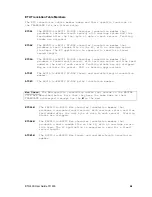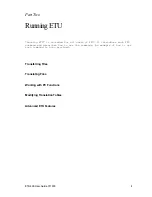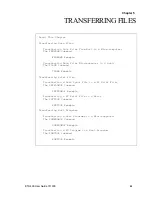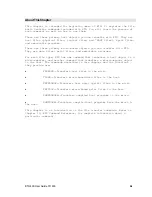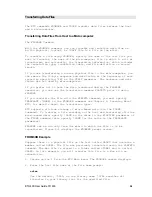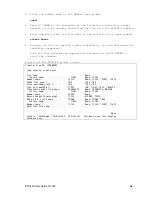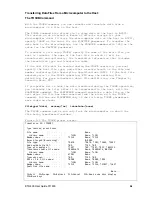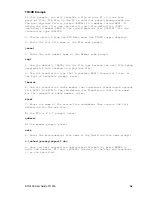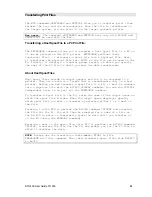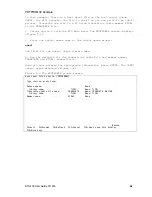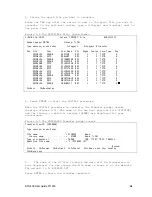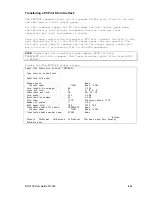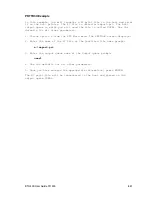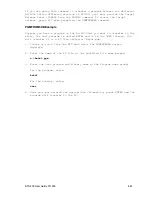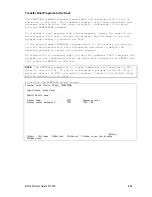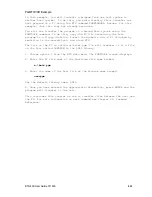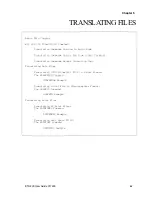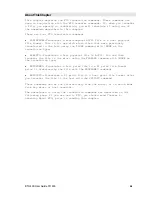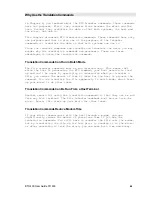
ETU400 User Guide 011603
5-3
Transferring Data Files
The ETU commands FROM3XB and TO3XB transfer data files between the host
and a microcomputer.
Transferring Data Files From Host to a Microcomputer:
The FROM3XB Command
With the FROM3XB command, you can transfer and translate data from an
AS/400 physical, logical, or *SAVF file to a file on the micro.
To transfer a file using FROM3XB, specify the name of the host file you
want to transfer, the name of the microcomputer file to which it will be
transferred, and optionally, the translation information, which includes
the translation type, translation table, and file definition or record
length.
If you are transferring a source physical file to the microcomputer, you
can remove the 12-byte sequence and date fields at the beginning of each
record by specifying *YES as the STRIP parameter. The sequence and date
fields are not used by microcomputers.
If you prefer not to have the data translated during the FROM3XB
operation, you can use the translation command XLATETO prior to using
FROM3XB.
If you translate the file with the XLATETO command, you must specify
TRANSLATE (*NONE) in the FROM3XB command. See Chapter 4, Learning About
ETU, for details about the translation types.
ETU supports off-line storage of micro-based data (via the TO3XB
command). To transfer a file residing on the host and containing off-line
micro-based data, specify *SAVE as the value in the FILETYPE parameter of
the TO3XB command (also specify *NONE for the value in the TRANSLATE
parameter).
FROM3XB can be run only from the micro to which the file is to be
transferred. Figure 5-1 displays the FROM3XB prompt screen.
FROM3XB Example
Suppose there is a physical file on the host called SALES that contains a
member called USER1. The file was previously translated using the XLATETO
command. The Mac file is stored in a folder called STORE1 and is called
SALES. In this example, you will transfer this file to a Mac with no
translation.
1.
Choose option 1 from the ETU Main menu. The FROM3XB screen displays.
2.
Enter the host file name at the File name prompt:
sales
Use the default, *LIBL, as the library name. *LIBL searches all
libraries in your library list for the specified file.
Summary of Contents for ETU400
Page 1: ...i ETU400 User Guide AS 400FileTransferUtility...
Page 30: ...ETU400 User Guide 011603 2 5 old versions since most users do not modify these tables...
Page 183: ...ETU400 User Guide 011603 10 53...
Page 239: ...ETU400 User Guide 011603 E 1 Appendix E ERRORMESSAGES NATIVEMODE...
Page 264: ...ETU400 User Guide 011603 F 1 Appendix F ASCII EBCDICPRINTABLECHARACTERS...
Page 304: ...ETU400 User Guide 011603 H 1 Appendix H INTERNATIONALTRANSLATIONTABLES...
Page 309: ...ETU400 User Guide 011603 J 1 Appendix J ETUTHROUGHPUTCONSIDERATIONS...

